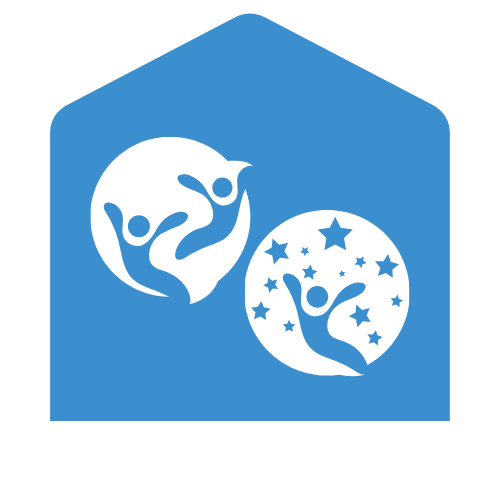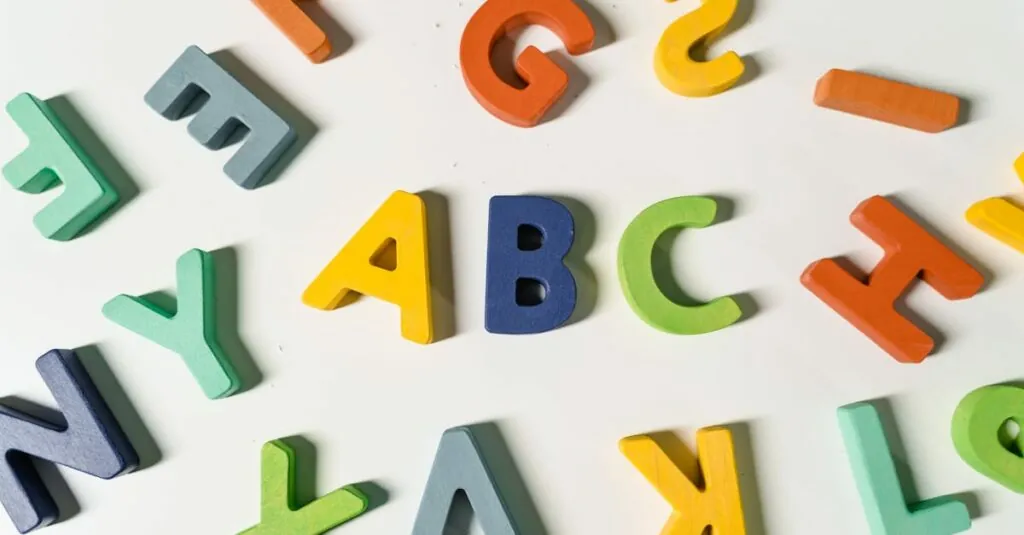Table of Contents
ToggleIn the bustling world of early childhood education, Pennsylvania’s Early Learning Standards are like the GPS guiding educators through the sometimes chaotic landscape of little learners. These standards aren’t just a set of guidelines; they’re the secret sauce that helps kids thrive, ensuring they’re not just building blocks but building futures.
Overview of PA Early Learning Standards
Pennsylvania’s Early Learning Standards establish a comprehensive framework for educators working with children from birth to age 5. These standards focus on key developmental domains: cognitive, social-emotional, physical, language, and literacy, ensuring all aspects of a child’s growth are addressed.
Educators use these guidelines to create age-appropriate learning experiences. The standards emphasize play-based learning as a critical component, recognizing that children learn best through exploration and interaction. This approach encourages creativity, problem-solving, and critical thinking.
Standards serve as a roadmap for assessing children’s progress. Regular observations and assessments enable educators to tailor their teaching strategies, ensuring they meet individual children’s needs. Understanding these standards aids in identifying developmental milestones appropriate for each age group.
Alignment with the Pennsylvania Core Standards allows educators to integrate early learning objectives with later educational goals. Collaboration among educators, families, and communities strengthens the support system surrounding the child’s learning journey. By partnering together, they create enriching environments that foster growth.
A notable aspect of the PA Early Learning Standards is their emphasis on inclusivity. All children, regardless of background or ability, benefit from quality early learning experiences. This commitment to equity ensures that every child has the opportunity to thrive.
Resources provided by the Pennsylvania Department of Education, including training and professional development, further support educators in implementing these standards effectively. Continuous improvement in teaching practices enhances the overall quality of early childhood education across the state.
Importance of PA Early Learning Standards
Pennsylvania’s Early Learning Standards play a pivotal role in shaping young children’s educational experiences. These standards guide educators in supporting developmental growth across various domains.
Developmental Benefits
Early Learning Standards enhance cognitive development through structured activities that promote problem-solving and critical thinking. Social-emotional skills improve as children engage in cooperative play, fostering relationships and effective communication. Physical development receives attention by encouraging movement and exploration in varied environments. Language acquisition also flourishes, supported by interactive learning activities that build vocabulary and comprehension. These combined benefits create a solid foundation for lifelong learning.
Educational Impact
The standards support effective curriculum design aligned with children’s needs, ensuring meaningful learning experiences. Assessment methods, defined by the standards, enable educators to track progress and adjust instruction accordingly. Educators can align their teaching with the Pennsylvania Core Standards, ensuring a smooth transition into elementary education. Collaboration among families, educators, and communities fosters richer educational environments. Inclusivity benefits all children, allowing diverse backgrounds and abilities to thrive in early learning settings.
Key Components of PA Early Learning Standards
Pennsylvania’s Early Learning Standards encompass essential elements that guide early childhood education practices. These standards address various domains and strategies crucial for children’s development.
Domains of Learning
Cognitive development focuses on problem-solving and critical thinking skills. Social-emotional aspects promote healthy relationships and effective communication among peers. Physical development encourages movement, helping children understand their bodies and enhance motor skills. Language and literacy domains aim to build vocabulary and comprehension through interaction and exploration. Each domain serves as a crucial pillar for holistic growth from birth to age 5, ensuring children receive a well-rounded foundation that supports future learning.
Assessment Strategies
Ongoing assessment strategies are necessary for monitoring children’s progress effectively. These strategies include observation, documentation, and checklists tailored to individual learning goals. Educators can utilize student portfolios to showcase growth and illustrate learning milestones. Utilizing a variety of assessment techniques accommodates diverse learning styles and needs. Regular communication with families enhances understanding and supports collaboration in the learning process, fostering an inclusive environment that values each child’s unique journey.
Implementation of PA Early Learning Standards
Implementing Pennsylvania’s Early Learning Standards involves strategic actions that support effective early childhood education. Educators play a pivotal role in this process by employing tailored teaching methods that align with the standards.
Role of Educators
Educators possess the expertise to facilitate children’s learning effectively. They assess individual needs and adapt their approaches accordingly, ensuring each child engages with developmentally appropriate practices. Through play-based learning, educators promote critical thinking and problem-solving abilities. Creating a nurturing environment encourages active exploration and interaction. Consistent observation and documentation allow educators to track progress, making adjustments as needed to support children’s growth.
Collaboration with Families
Collaboration with families enhances the implementation of early learning standards significantly. Engaging parents in their child’s education fosters a supportive home learning environment. Sharing progress reports and inviting feedback ensures families remain active participants in the learning process. Workshops and resources empower parents by providing them with strategies to reinforce learning at home. Regular communication strengthens the home-school connection, contributing to children’s overall success.
Challenges in Adopting PA Early Learning Standards
Adopting Pennsylvania’s Early Learning Standards presents several challenges for educators. Limited professional development opportunities hinder the ability to fully understand and implement these standards. Many educators report feeling overwhelmed by the breadth of the standards, struggling to translate theory into practice effectively.
Resources allocated for training and materials often prove insufficient. Without access to high-quality instructional materials, educators find it challenging to engage children in play-based learning effectively. Programs that support educators in navigating these challenges are necessary but often lack adequate funding.
Communication barriers also exist between educators and families. Educators may experience difficulties sharing progress with parents, which can impact family engagement in their child’s learning journey. Building strong relationships with families becomes essential, as their involvement significantly influences children’s educational outcomes.
In addition, disparities in resources across districts contribute to inconsistent implementation. Schools in underfunded areas often lack the necessary support to adopt these standards actively. Variations in community demographics further complicate the effectiveness of the standards, as diverse backgrounds may require tailored approaches.
Time constraints present another significant obstacle. Educators frequently face pressure to meet various educational requirements, which can limit the time devoted to early learning initiatives. Prioritizing the adoption of these standards is vital to fostering high-quality education for young children.
Lastly, maintaining ongoing assessment practices poses challenges. Educators must continuously monitor children’s progress, which requires time and thoughtful planning. Adequate structures for documentation are necessary to support this continuous evaluation effectively.
Pennsylvania’s Early Learning Standards play a vital role in shaping the educational landscape for young children. By providing a structured framework, these standards empower educators to foster holistic development across various domains. The emphasis on play-based learning nurtures creativity and critical thinking while promoting essential social-emotional skills.
Collaboration among educators, families, and communities remains crucial in creating enriching environments that support each child’s unique journey. Despite the challenges faced in implementation, the commitment to these standards can lead to transformative outcomes for children, laying the groundwork for future academic success. Prioritizing professional development and resource allocation will further enhance the effectiveness of these standards, ensuring that every child receives quality early learning experiences.







